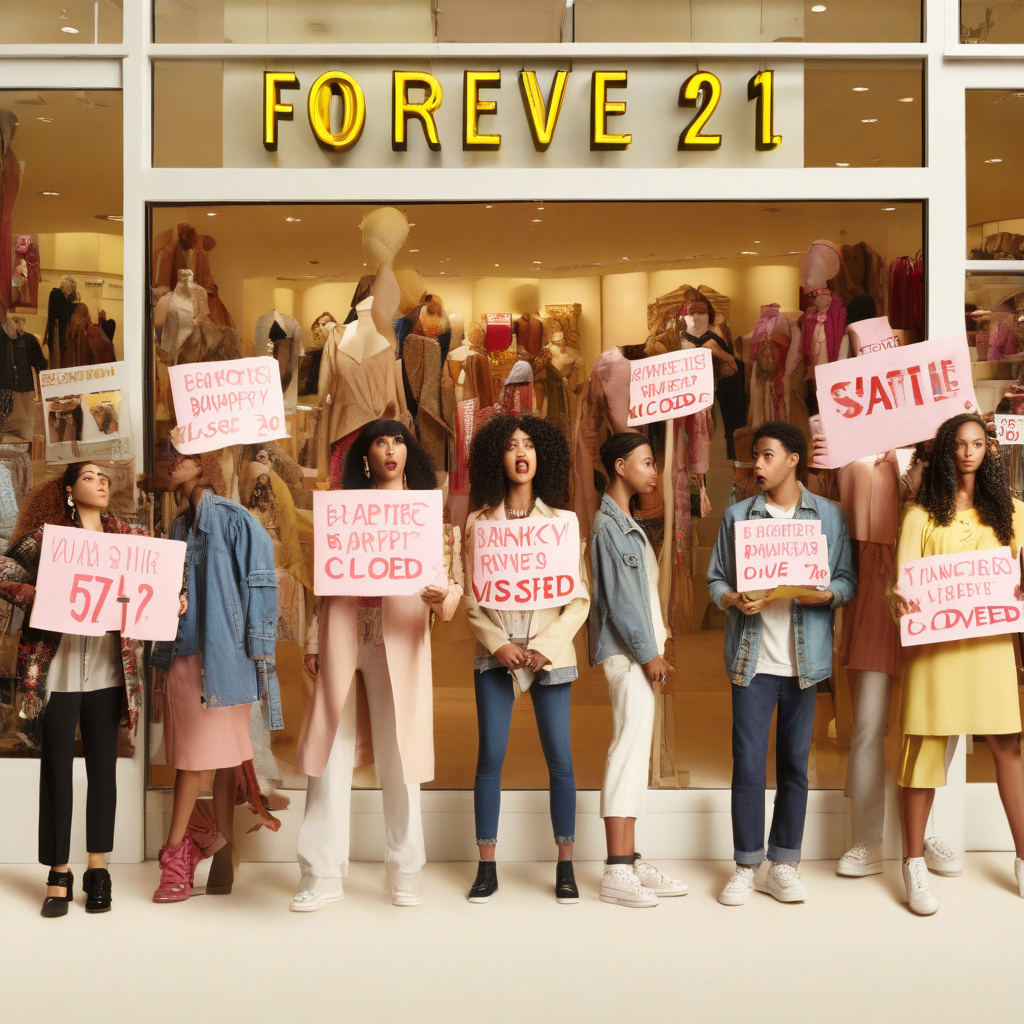‘They Played Us’: Forever 21 Vendors Scorn Retailer’s Bankruptcy
Forever 21, once a powerhouse in the fast-fashion industry, has recently faced backlash from its vendors. The brand’s US operator is under fire for allegedly requesting significant discounts on orders from suppliers and then proceeding to accept deliveries shortly before filing for bankruptcy. This move has left many vendors feeling deceived and scorned by the retail giant’s actions.
The relationship between retailers and vendors is crucial in the fashion industry. Vendors rely on timely payments and consistent orders to keep their businesses afloat. When a major player like Forever 21, known for its trendy and affordable clothing, suddenly changes course without warning, it sends shockwaves throughout the supply chain.
Several vendors have come forward with claims that Forever 21’s US operator asked for discounts of up to 25% on existing orders. In an already competitive market, where profit margins can be slim, such demands can put vendors in a difficult position. Despite these requests, vendors fulfilled the orders in good faith, only to later discover that Forever 21 had filed for bankruptcy protection.
What makes this situation even more distressing for vendors is the timing of events. Forever 21 reportedly continued to accept shipments and make orders up until the last minute before declaring bankruptcy. This lack of transparency has fueled feelings of betrayal and frustration among vendors who now find themselves in a precarious financial situation.
For vendors, the fallout from Forever 21’s bankruptcy goes beyond just financial losses. The damage to their trust and confidence in the brand can have long-lasting effects. Suppliers may now think twice before entering into partnerships with other retailers, fearing a similar scenario could unfold.
This incident serves as a cautionary tale for vendors in the fast-fashion industry. It highlights the importance of due diligence and clear communication in business relationships. Vendors must protect their interests and be wary of signs that a retailer may be struggling financially. While it can be tempting to secure a large contract with a well-known brand like Forever 21, vendors must also assess the risks involved and have contingency plans in place.
In response to the allegations, Forever 21’s US operator has stated that it is committed to working with vendors to reach a resolution. However, the damage to relationships and reputations may already be done. Vendors who feel they have been wronged may seek legal recourse to recoup their losses and hold the retailer accountable for its actions.
As the dust settles on Forever 21’s bankruptcy proceedings, the fallout from this episode will continue to ripple through the fast-fashion industry. Vendors will undoubtedly be more cautious in their dealings with retailers, and consumers may also reconsider their loyalty to brands that do not uphold ethical business practices.
In a competitive and ever-changing industry like fast fashion, trust and transparency are invaluable commodities. Forever 21’s vendors have learned a hard lesson about the risks of doing business with a retailer whose financial stability is in question. The repercussions of this betrayal will be felt for years to come, serving as a stark reminder of the importance of integrity in all business dealings.
Forever 21, vendors, bankruptcy, fast fashion, retail industry












